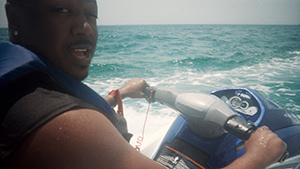 The purpose of this article is to assist potential travelers with identifying and avoiding common travel related scams. Travel scams are those that specifically target foreigners of a country (tourists) in an effort to obtain as much money as possible – whether by purchase, donation, or by outright theft.
The purpose of this article is to assist potential travelers with identifying and avoiding common travel related scams. Travel scams are those that specifically target foreigners of a country (tourists) in an effort to obtain as much money as possible – whether by purchase, donation, or by outright theft.
But before I get into some common travel scams, I think it makes sense to distinguish between a scam and someone simply aggressively trying to sell you something. In short, a scam is you giving money for something that you didn’t agree to – whether poor quality (fake gold), a ripoff (where’s the Nigerian Prince), or some other means. Armed robbery and/or pick pocketing are not scams in that scams generally require you to be a participant in your own loss.
“A fool and his money are soon parted” Thomas Tusser
While this absolutely true, travel scams are somewhat different than other types of cons. It’s not so much that the concept of the scam is different, but that for whatever reason tourists tend to either let their guards down and/or do things they would never do in their own hometowns. Think about it, how many of us would follow someone into a dimly lit room to buy jewelry at 50% off in the city in which we live? How many of us would jump into an American cab that didn’t have a working enter and ‘hope’ for the best once you got to where you were going? The answer is not many – but these happen far too often when we travel.
These scams attack travelers using three primary angles:
- Decency – Scams that appeal to your civility, e.g., my car just broke down – can you help me?
- Greed – Scams that take advantage of your greed, e.g., this Louis Vutton purse is 40% less here than in the US.
- Ignorance – Those that take advantage of your lack of understanding of the language and/or culture, e.g., this is special/rare XXX only found in this country.
One of the best resources to identify, understand, avoid and/or remove yourself from these sticky situations is the Common Scams page on one of my favorite travel sites – WikiTravel.org – http://wikitravel.org/en/Common_scams
My Personal Experiences with Scams
The remainder of this article will focus on three of the scam types from the Wikitravel article – each of which I’ve had personal experience. The details of the situation, outcomes and lessons learned from each are on the next page.
Scam: Crap Jewelry – Cairo, Egypt
 While on a private tour to the Pyramids, Sphinx and Memphis, our tour guide took us to not one – but two ‘special’ destinations. The first was an Egyptian oil/perfume company that produces the world’s best oils – that can only be found in Egypt (riiiight). A couple of hours later, we ended up in an Egyptian Hieroglyphics jewelry company. While I had no interest in the oils – I thought having my name encased in a gold pendent in a thousand year old language would be pretty cool. In fact it was pretty cool – until the gold plating started to tarnish. To make matters worse, I broke my own rule – I paid for a non-perishable item using cash (dummy). Of course, the pendent didn’t start to tarnish until I was on my way home – so no opportunity to take it back.
While on a private tour to the Pyramids, Sphinx and Memphis, our tour guide took us to not one – but two ‘special’ destinations. The first was an Egyptian oil/perfume company that produces the world’s best oils – that can only be found in Egypt (riiiight). A couple of hours later, we ended up in an Egyptian Hieroglyphics jewelry company. While I had no interest in the oils – I thought having my name encased in a gold pendent in a thousand year old language would be pretty cool. In fact it was pretty cool – until the gold plating started to tarnish. To make matters worse, I broke my own rule – I paid for a non-perishable item using cash (dummy). Of course, the pendent didn’t start to tarnish until I was on my way home – so no opportunity to take it back.
Outcome: Out of $60 US. I don’t care what anyone says – never buy jewelry overseas – the risks just aren’t worth it. In today’s global economy, it is extremely unlikely that you will find a significant discount on real, commodity based items – aka jewelry. If you are dead set on buying something – do so with your credit card. At least you’ll have some recourse if you didn’t actually get what you paid for.
Lesson Learned: Always pay with credit card, when taking tours – demand not to be taken anywhere that involves a sales pitch. Threaten not to give the guide a tip if they do.
Scam: The Kick Back (Commissions) – Cairo, Egypt
We are on our way to one of the outside shopping plazas in Old Cairo. As we jump out of the taxi, some dude starts to speak English to us. He starts to go on about how he doesn’t want to sell us anything – he  just wants to practice his English. After a little small talk – wait for it…. “Hey, let me show you some really nice Egyptian artwork. It’s made by students so it’s really cheap, yada, yada, yada”. Whatever, he’s going in the direction I was already going and I know I’m not buying anything – plus, it’ll give me a chance to laugh at his sales pitch. Long story short, he’s weaving us through this side street and that one… old lady on the left just cut off a rooster’s head…nice…I look up… where the heck are we….how’d we get this far from the main street???
just wants to practice his English. After a little small talk – wait for it…. “Hey, let me show you some really nice Egyptian artwork. It’s made by students so it’s really cheap, yada, yada, yada”. Whatever, he’s going in the direction I was already going and I know I’m not buying anything – plus, it’ll give me a chance to laugh at his sales pitch. Long story short, he’s weaving us through this side street and that one… old lady on the left just cut off a rooster’s head…nice…I look up… where the heck are we….how’d we get this far from the main street???
Outcome: Didn’t lose any money – as I wasn’t about to buy anything. However, I put myself in a dangerous position by following this guy through a bunch of twists and turns – away from the main street. Part of the reason I allowed this to occur is this feeling of invincibility – the “what are these clowns gonna do to me – I’m from [insert_tough_US_city_here] syndrome”? The thing is, I would never go to the south side of Chicago, Brooklyn or Liberty City (Miami) and follow some dude through an alley – so why the hell I did this in Egypt is beyond me. Anyway, I ditched this dude and the guy who was waiting for us and we continued with where we were originally going.
Lesson Learned: Don’t follow anyone anywhere – certainly not into any obscure area. Nobody randomly picks someone else out of a crowd to practice language skills – it’s the start of a scam.
Scam: Broken Taxi Meter – Kingston, Jamaica
Get in the cab and the driver pulls off before I tell him the destination. I start to tell him and I realize the meter is broken. “Hey – the meter looks broken”. “Yea mon – we take care of it when we arrive”
Outcome: The hell you will. I opened the door, which forced him to stop. We need to agree on the price before you take me anywhere or I’ll get out right now. Bartering ensures. $50 he says – $15 I reply…. $45…..$15…$40….$15…C’mon man – $35…..$15….okay Final offer $30…Sold – for $20.
Lesson Learned: None really – but concept applies to any country where meters are not the norm – always agree on a price before you close car door.
Wrapping It All Up
Anyone can fall victim to a travel scam no matter how seasoned they may be due to a variety of reasons. So long as you understand that all scams involve one common element – your money – you can better recognize and avoid parting ways with your money.
A few things to remember
- There are plenty of scams and it isn’t personal. Recognize and avoid. Don’t let the possibility of someone approaching you dim your desire to travel. At worst, this should be a minor nuisance.
- If it’s too good to be true – it is. I know that’s a cliché – but clichés are true.
- I may be cynical, but no one approaches you to help you. As soon as I sense the help language (particularly if I’m not in distress), I’m immediately waiting for the pitch.
- Always use a credit card for any non-perishable purchases over $40.
Happy Travels!














